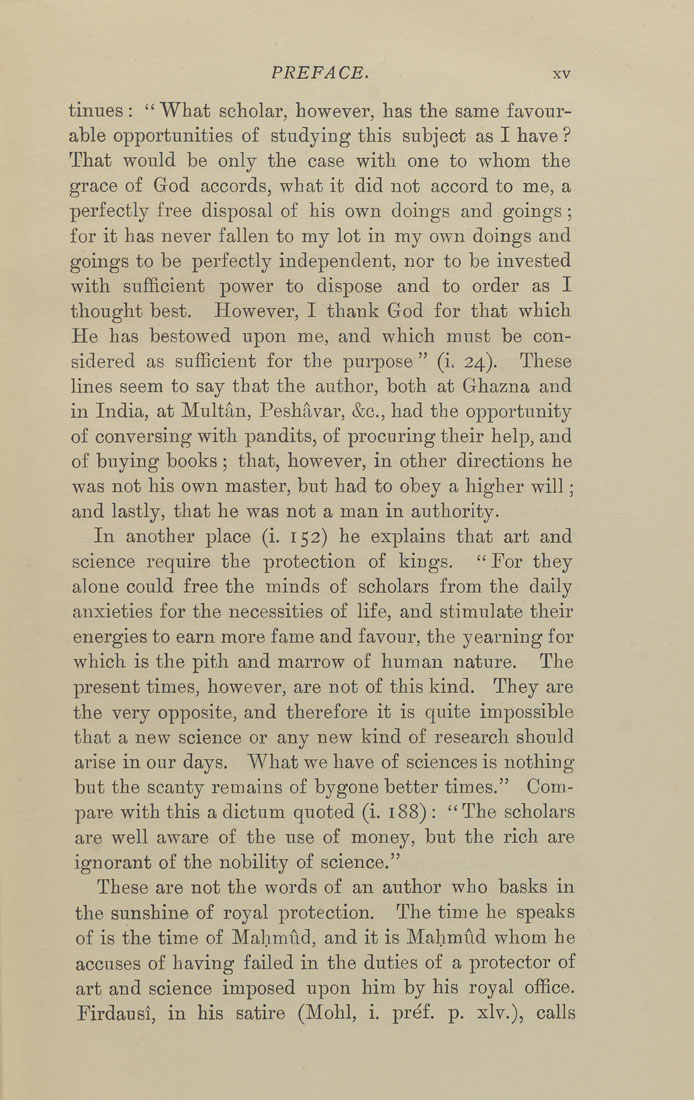Bīrūnī, Muḥammad ibn Aḥmad, Alberuni's India (v. 1)
(London : Kegan Paul, Trench, Trübner & Co., 1910.)
|
||
|
|
|
|
| Page xv |

PREFACE. XV tinues: "What scholar, however, has the same favour¬ able opportunities of studying this subject as I have ? That would be only the case with one to whom the grace of God accords, what it did not accord to me, a perfectly free disposal of his own doings and goings ; for it has never fallen to my lot in my own doings and goings to be perfectly independent, nor to be invested with sufficient power to dispose and to order as I thought best. However, I thank God for that which He has bestowed upon me, and which must be con¬ sidered as sufficient for the purpose " (i. 24). These lines seem to say that the author, both at Ghazna and in India, at Multan, Peshavar, &c., had the opportunity of conversing with pandits, of procuring their help, and of buying books ; that, however, in other directions he was not his own master, but had to obey a higher will; and lastly, that he was not a man in authority. In another place (i. 152) he explains that art and science require the protection of kings. " For they alone could free the minds of scholars from the daily anxieties for the necessities of life, and stimulate their energies to earn more fame and favour, the yearning for which is the pith and marrow of human nature. The present times, however, are not of this kind. They are the very opposite, and therefore it is quite impossible that a new science or any new kind of research should arise in our days. What we have of sciences is nothing but the scanty remains of bygone better times." Com¬ pare with this a dictum quoted (i. 188) : "The scholars are well aware of the use of money, but the rich are ignorant of the nobility of science." These are not the words of an author who basks in the sunshine of royal protection. The time he speaks of is the time of Mahmud, and it is Mahmud whom he accuses of having failed in the duties of a protector of art and science imposed upon him by his royal office. Firdausi, in his satire (Mohl, i. pref. p. xlv.), calls |
| Page xv |







